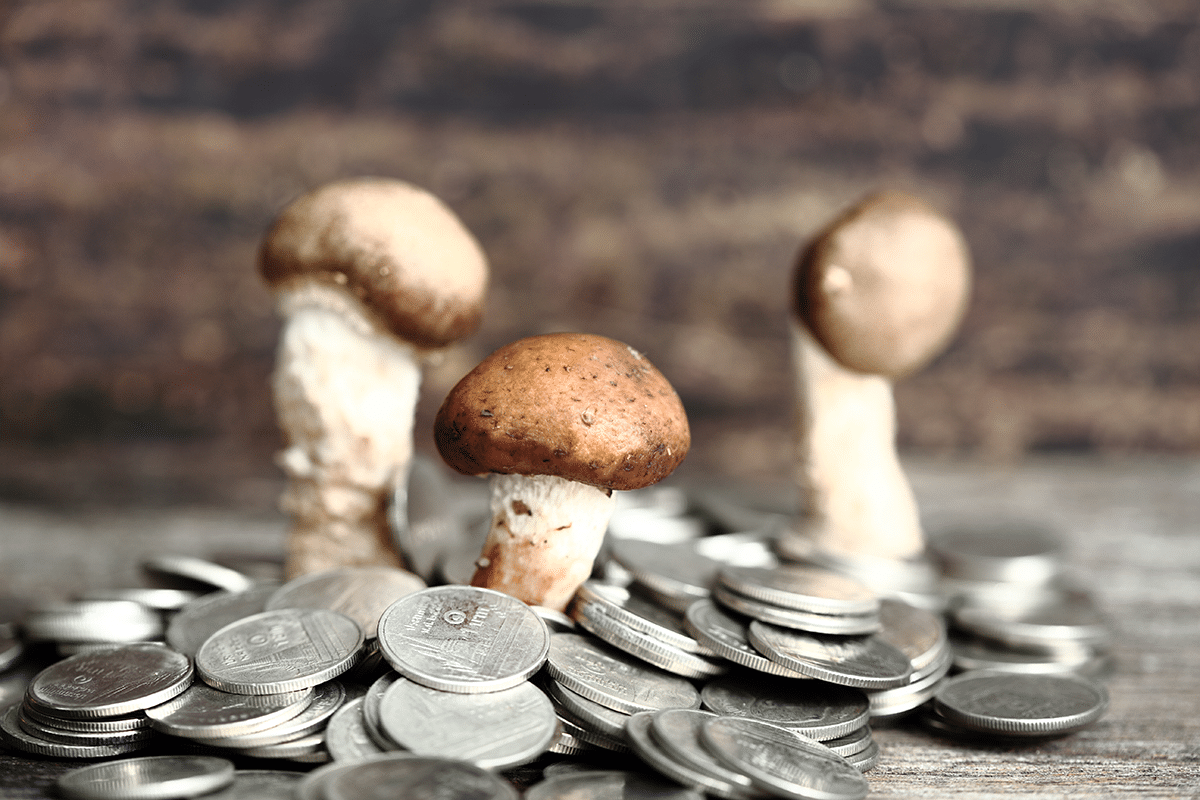Acquire Reserve

Psychedelics are back in vogue. But this time around, it’s unique. Absent is the controversial, transgressive, counterculture spin that psychedelics carried in the rebel 1960’s. The current psychedelic revival is pragmatic, target-oriented, and in a lot of methods quintessentially mainstream.
Whether it’s ballot actions legalizing magic mushrooms, or Silicon Valley tech bros microdosing LSD to improve their get the job done general performance, or LA soccer mothers embarking on trendy ayahuasca retreats, the symptoms of a psychedelic renaissance in the United States are hard to skip.
Psychedelic commence-ups are the most up-to-date undertaking funds fad, and new research facilities at prestigious tutorial institutions these kinds of as Johns Hopkins, UC Berkeley, Mt. Sinai, and Harvard’s Massachusetts Basic Clinic are learning the outcomes of psychedelics on stress and anxiety, habit, PTSD, obsessive-compulsive condition, conclude-of-daily life transition, and considerably extra. The Fda has even rapidly-tracked psilocybin, the psychedelic mushroom extract, for acceptance as a cure for refractory depression.
Do a Google look for of “magic mushrooms” and you are going to discover a wide market with texts on how to grow your individual phantastic fungi, T-shirts and pajamas embellished with cheerful crimson-and-white pictures of amanita muscaria, and on the internet shops presenting hallucinogenic mushroom spores, stealthily payable by Bitcoin – while finest-selling publications like A Actually Excellent Day by Ayelet Waldman and Michael Pollan’s How to Improve Your Mind (now a Netflix documentary series) depict psychedelics as eminently valuable for self-exploration, spiritual refreshment, and breaking negative patterns.
Truth Look at
Even though it could seem like the current cultural swerve to normalize psychedelics is lengthy overdue very good information, there’s also a disturbing facet to all this. For a truth examine, we convert to Psychedelic Justice: Towards a Various and Equitable Psychedelic Tradition, an less than-the-radar anthology edited by Beatriz Labate and Clancy Cavnar. Posted in 2021 by Synergetic Push in collaboration with the Chacruna Institute for Psychedelic Plant Medication, this reserve deserves major awareness.
Psychedelic Justice kicks up the variety of dust you won’t find in mainstream media. It grapples with complicated queries about discrimination, sexual abuse, and the legacy of colonialism, though advocating for an inclusive, social justice-focused psychedelic ethos.
Even though all the contributors to this assortment deeply regard the transformative electricity of psychedelics as therapeutic brokers, they implore us to imagine of these substances as significantly much more than catalysts for switching the individual mind. Nor should they be noticed as a magical panacea for the ills of the present day globe. Psychedelics are seriously additional like mirrors, revealing not only who we are as men and women, but who we could be as a wholesome, equitable culture.
“Let’s not underestimate what we can attain with these plant academics as our accomplices,” Charlotte Walsh writes in the essay, “Beyond the Prohibition of Plant Medicines.” They can assist us “to identify the illusion of separation from other people, to connect with mother nature, with the sacred, with like, and in executing so, they educate us to obtain succor from in just, fairly than endlessly attempting to fill that gaping hole…”
Variety in the Psychedelic Area
When various universities and start out-ups are conducting scientific tests on dealing with trauma with psychedelics, Black persons with PTSD and other mental struggles are leery of offering it a try out, according to writer Monnica Williams. In her essay, “Why Black People Really should Embrace Psychedelic Therapeutic,” Williams describes that reluctance between African Us citizens to be a part of the psychedelic renaissance is partly owing to the stigma connected to illicit substances and the extended record of drug-associated oppression of Black folks.
From barbaric LSD experiments carried out on Black prison inmates in the 1950s (see Acid Desires by Lee and Shlain) to the biased legal justice process that utilized the Reagan-era “War on Drugs” as a pretext for the mass incarceration of Black men and women, African People in america are understandably cautious of psychedelics “and the vulnerability that arrives with getting in an altered state,” says Williams. Despite these barriers, she maintains that Blacks could profoundly benefit from these substances, specially for addressing “racial trauma” and the wounds endured by “large and little blows from discrimination gathered in excess of a life time.”
In “Hate and Social Media in Psychedelic Areas,” Beatriz Labate and Nicole Buchanan drive back again on well-liked assumptions that the psychedelic group is “welcoming, inclusive and devoid of racism” and that psychedelics are “apolitical, even elevated higher than politics.” Right after a backlash from anti-racist social media postings inside of the psychedelic world-wide-web sphere, the authors compiled a record of “Eight Myths the Psychedelic Local community Tells Itself” – together with the fantasy that psychedelics will “fix society and carry us enlightenment” as lengthy as we “come alongside one another and allow them do their magic.” If it were genuinely that easy, who would not be in favor of spiking the municipal drinking water supply with Lucy or Molly?

“I Am Not a Scientist, I’m an Indian.”
In “My Diploma is From the Forest,” Amazonian curandero Leopardo Yawa Bane describes getting one particular of the couple Indigenous speakers out of sixty folks who had been invited to discuss at the Psychedelic Science Meeting held in Oakland, California in 2017, and how the “doctors, neuroscientists, chemists, and academics experienced apparently figured it all out and moved on devoid of us.”
Ayahuasca, claims Bane, “is not intended to be nevertheless one more drugs that receives plucked from the forest to enrich pharmaceutical businesses and go away Indians, the genuine guardians of this sacred drugs, behind.” When classic Indigenous shamans may possibly not hold PhDs, he claims, “the forest is our university.”
In her essay “Colonial Shadows in the Psychedelic Renaissance,” Diana Negrín phone calls for “defending the lands that sacred medicines are element of although respecting the understanding of Indigenous peoples who provide generations of investment in knowing these medications.” She critiques the current commodification of sacred plant medications and the huge market of retreats, exactly where “the girls are captivating, there are sweat lodges and tipis, chanting, eco-villages, yoga, massage, and vegan food, [and] you can rotate ayahuasca, San Pedro, peyote, kambô, and rapé.”
A group of writers related with the Union of Indigenous Yagé Health professionals of the Columbian Amazon (UMIYAC) lower to the chase in “Cultural Appropriation & Misuse of Ancestral Yagé Drugs.” UMIYAC states: “The title of this plague scourging our territories is ‘extractive economy’. This social romantic relationship has traditionally linked our cultures with the ‘outside entire world.’ It is the pillaging of assets, fauna, flora, minerals, hydrocarbons, individuals, and expertise.”
Queers, Shamans & Sexual Abuse
Other essays in Psychedelic Justice confront the exploitation, marginalization, and abuse that women of all ages and LGBTQ people expertise within the local community. In “Psychedelics are Queer, Just Indicating,” Bett Williams indicates that “queerness exists in a realm bigger than identification politics… a realm of getting that is individual, political, religious even, and like psychedelics, the sort it usually takes is dependent on cultural context.” Queers used to be unlawful, just like psychedelics, and queers know how to make local community in instances of disaster, says Williams. She maintains that the most helpful solutions for integrating queers and other marginalized teams into the psychedelic area are the tangible kinds: include things like their values, publish their sights, give them employment and funding.
A number of writers in this anthology chronicle the definitely harrowing physical and emotional abuse of women of all ages perpetrated by male shamans, facilitators, and researchers who wield electricity within the psychedelic group. In “Dating My Ayahuasca Shaman: Sexual intercourse, Electric power, and Consent,” a writer who phone calls herself “Mary” describes an ayahuasca retreat wherever the “shaman,” after attaining her have faith in as a guideline by the powerful ayahuasca expertise, initiated a sexual come upon while she was in a vulnerable condition, violating the safekeeping he was billed with and triggering significant confusion and trauma in the weeks and months that adopted.
In reaction to rampant experiences of sexual abuse, Chacruna published the “Ayahuasca Group Guide for the Consciousness of Sexual Assault.” It specifics a listing of 17 safety safeguards for ayahuasca-centered settings, while they could simply use to any circumstance the place a single particular person “guides” or “facilitates” the psychedelic expertise of a different. Quantity four on the listing of 17: “It Is Not Necessary for Healers to Touch Intimate Elements of Your Overall body or Any Location Which You Do Not Consent.”
Just one would believe these apparent moral boundaries would be a given, specifically in government-sponsored trials, but sadly the psychedelic analysis vector has its share of related tales. In “Psychedelic Masculinities: Reflections on Ability, Violence and Privilege,” Gabriel Amezcua traces the roots of these “toxic masculinities” within psychedelic lifestyle to the unholy trinity of “patriarchy, Western colonialism, and capitalist consumerism, which our modern society need to realize, restrict and in the long run dissolve.”

Thoughts Enlargement Satisfies Head-Shrinking
In “The Revolution Will Not Be Psychologized: Psychedelics’ Potential for Systemic Modify,” Invoice Brennan asserts that “much of what comes out of the psychedelic encounter is only as impactful as the integration that follows it.”
Medical protocols geared towards Fda acceptance are commonly administered by psychotherapists who mix psychedelics with Western-model psychotherapy. But, as Brennan points out, the psychotherapeutic slant favors the primacy of the particular person more than the social arena, therefore advertising “individual-stage remedies for lots of of our systemic challenges.”
Brennan argues for “a much more expansive model of healing that leaves place for person encounters to contribute to collective transformation.” For inspiration, he turns to the get the job done of radical Brazilian educator Paulo Freire, who produced a praxis based mostly on “critical consciousness elevating,” whereby a client recognizes and unravels internalized sorts of oppression in purchase to advance sociopolitical modify.
Brennan proposes that Freire’s methodology (which was influenced by liberation theologian Ignacio Martin-Baró) could be put together with psychedelic therapy – the ideal final result being that the affected individual “has not just healed their possess trauma but has taken ways to uproot the situations that established the stage for the traumatic event.”
Tripping for Dollars

In a no-retains-barred essay, “Capitalism on Psychedelics: The Mainstreaming of an Underground,” Erik Davis addresses the schism brewing inside of the psychedelic local community all over troubles of commodification. He warns that psychedelics are getting dragged into “the garish mainstream light” of “capitalism and technologies in motion,” a toxic amalgam of intellectual home rights, biased company-sponsored college trials, skilled agencies, the rivalry for status and money, and a “normalizing discourse that involves the marginalization of earlier and a lot more unruly psychedelic authorities, visions, scientists, and group values.”
Dozens of notables in just the psychedelic exploration group endorsed a “Statement on Open Science and Open Praxis with Psilocybin, MDMA, and Very similar Substances” that circulated in advance of a 2018 Chacruna symposium. Davis refers to this statement even though illuminating the present-day tilt to “for-profit company behaviors that have lately been unleashed in the psychedelic space,” which he and others truly feel never jive with the “commitment to scientific integrity, info-sharing, and the spirit of support.”
Think about, for case in point, the previously-nonprofit, now-for-revenue Compass Pathways, backed by billionaire Peter Thiel, bankroller of considerably-suitable racist politicians, immigrant-bashers, anti-abortion absolutists, and anti-science weather-deniers. Compass Pathways’s US Patent # 10,519,175 presents the company possession of a therapy for cure-resistant melancholy employing a preparing of crystallized synthetic psilocybin. And the Mercer Spouse and children Foundation, a big patron of Donald Trump and Breitbart News, has pitched in a million dollars for MDMA study to treat armed forces veterans with PTSD.
“Today’s dominant tradition,” Davis argues, “is not a reality to be accommodated, but an existential risk to be resisted.” The psychedelic group can no more time pretend, he suggests, “that the course of action of mainstreaming is a purely optimistic, hope-for-humanity improvement that is independent from the greater crises of capitalism, militarism, authoritarianism, and the intensification of control around subjectivity.”
But all is not misplaced, Davis assures us: “The decentralized world wide web of psilocybin manufacturing — so weirdly mirrored in the framework of the mycelium by itself — is all the ever-altering tribe of outlaws and freethinkers demands. Magic mushrooms are now in the gentle, but they will normally mature ideal in the shadows.”
Acquire Reserve
Melinda Misuraca is a Undertaking CBD contributing author with a previous daily life as an previous-college hashish farmer specializing in CBD-loaded cultivars. Her article content have appeared in High Moments, Alternet, and quite a few other publications. Copyright, Project CBD. Could not be reprinted without having permission.




